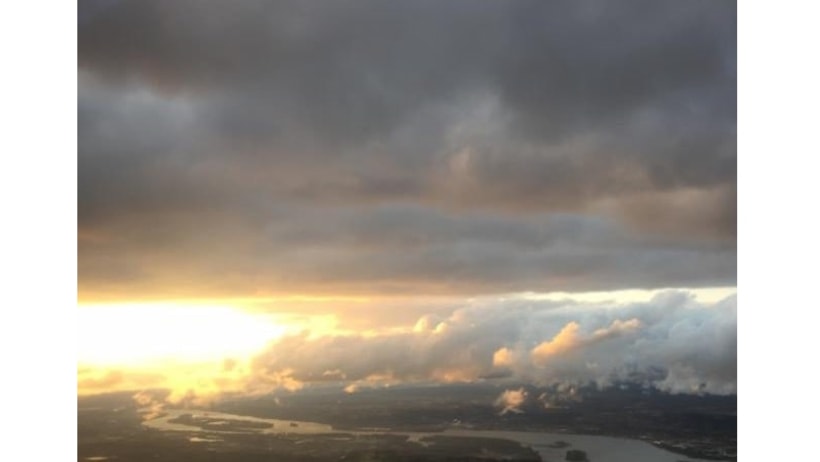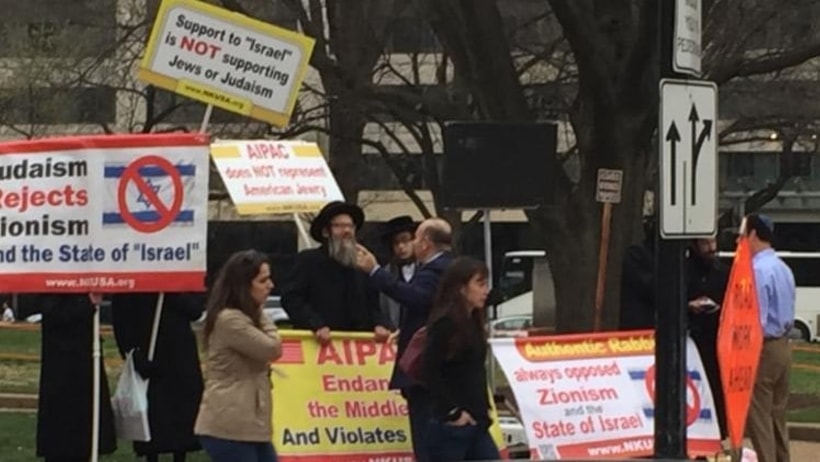Oasis Songs: Musings from Rav D
Friday, March 31, 2017 / 4 Nisan 5777
Summary: In today’s Oasis Songs, Rabbi Kosak will discuss Israel. He’ll review Neveh Shalom’s in-house programming and discuss his experiences at the AIPAC policy conference in Washington, DC. He provides some vignettes on the variety of people he met, political realities in the Middle East, as well as some insights he gleaned about who the silent majority on Israel are and what they believe. His article ends with a spiritual insight on the silent majority that is relevant to both how we view Israel and how we conduct our own lives. The sections are highlighted so that you can focus on areas that interest you more.
At Neveh Shalom
This has been my Israel week.
On Saturday night, we made havdalah and Laura drove me straight to the airport to catch a red eye flight to Washington, DC. I was heading to the AIPAC policy conference. I returned on Wednesday evening, exhausted but full of thoughts.

Last night, our new Israel360 series launched with a program on morality in the Israeli army. Thanks to our committee members Cheryl Livneh, Ed Kraus, Steve Sirkin and Rabbi Isaak for their guiding efforts to create a respectful space for dialogue about Israel that is open to diverse viewpoints; and to Brian Rohr who helped facilitate and reminded us all of the skills involved in discussing topics which raise up our passions. A special note of gratitude is owed to our community’s shlicha, who shared her personal experiences in the Israeli army as an instructor and to her friend Richard who is a lone soldier.
For those who don’t know, a shaliach is an emissary charged with educating the community about Israel. Timna Rockman has been here since December and will be leaving in June. She’s presented twice to our youth and is coming one more time. But this program was different. Timna talked about her work training soldiers; more poignantly, she shared the story of her brother who disappeared from his unit and fled to the Judean desert. It was his favorite place in all of Israel, and it apparently summoned him one final time. You see, when they finally found him, four days after he vanished, it was with his rifle in his hands. Unable to deal with his experiences as a soldier, he’d taken his life. Sadly, suicide is the number one cause of death for Israeli military personnel.
What I Learned at Aipac’s 2017 Policy Conference
For many years, AIPAC’s annual policy conference has been held in Washington DC. When it first began, only a few hundred people attended the American Israel Public Affairs Committee. This year, there were over 18,000 people from all walks of life.
I met a young, charismatic man from Texas who will begin his studies for the ministry next year. He really felt Texan to me, polite and friendly as can be, his speech peppered with “yes ma’ams and no sirs.” I suspect he will go far. He just has an infectious and joyous personality. We enjoyed talking theology and the challenges and rewards of a clergy person’s work. He believes God gave Israel to the Jewish people as an eternal gift and so this is the third policy conference he attended.

Across from the convention center there was one group of polite protesters who are committed to the precise opposite. The Jews of Neturei Karta, or the Guardians of the City, hold that the existence of Israel is a sin, formed as they see it by human action rather than by divine fiat. They feel we rushed redemption by not waiting patiently for the messiah, and that this is the cause of Israel’s many problems with her neighbors. Their beliefs put them at the far end of the Jewish community, and politically unites them with the Palestinian cause, the far left and those who would like to see the state of Israel dismantled. Nonetheless, they greeted me in a friendly manner and were happy to engage.
There’s a lot of variety among the Jewish people and her allies.
Inside, that same sense of variation held. I met the Chabad rabbi of San Luis Obispo, Chaim Hillel. SLO, as it’s affectionately called, is a small city on California’s central coast. During breaks from rabbinical school, we’d drive up to Laura’s home on the Monterey peninsula. Sometimes we would spend the night in SLO. Now there’s a Jewish presence there.
Many of my colleagues from rabbinical school days were in attendance. Their views on Israel range from the mid-left (J-Street) to the mid-right (supportive of Netanyahu); it was great to be reunited with them, to hear their points of view and to understand how we all hope for better days.
The conference itself was a mixed bag. How could it not be when there are 18,000 people whose political views mimic my colleagues and who are Hispanic, Black, Asian and Caucasian? How could it not be when the speakers ranged from Vice President Pence to Senator Tim Kain, from Israeli Prime Minister Bibi Netanyahu to opposition leader Isaac Herzog. There were politicians, pundits and deep policy wonks. As you’d probably guess, I found the wonks much more enlightening than polemicists such as Alan Dershowitz.
Institution Building, the Status of Syria and Heartbreaking Moral Choices
One wonky break-out session I attended was on the status of Syria, another was on democratic institution building in Middle Easter countries. That’s been an area of special interest of mine for some time. It seems that meaningful democracy and protection of human rights is better understood by the quality and quantity of these institutions than by the outcome of popular votes, yet this foundational work rarely if ever appears in the media. What’s important here is that many of these institutions are being strengthened, and that improves the quality of life and opportunity for real people. Although the proposed new federal budget will reduce their coffers, the two specialists, Scott Mastic and Jeff England, believe it will not seriously impact their work and may spark them to new creativity.
Syria, meanwhile has been and will continue to be balkanized. Perhaps there will be two Kurdish protectorates. In hindsight, I am left in the uncomfortable position of wondering what might have happened if the United States and Russia had supported the dictatorship of Bashar al-Assad. Would half a million people be dead? Would ten million people be displaced? These are terrible questions. Before Passover, it forces us to reflect on the how to balance the value of freedom/self-determination against that of life itself. Excruciating moral choices. At this juncture, we can only hope that when the conflict ends there will be a stable new reality for the area.
Profound Spirituality in the Guise of Humility
The highlight of the conference was a private session for clergy. It featured Rabbi Donniel Hartman of the Hartman Institute in Jerusalem. Donniel is one of the few people I know who can speak on Israel for two hours, completely captivate his audience while doing so, and never utter a platitude.
He shared his perspective on how Israel society now views the leftist (ha-smalani) as a boged, a traitor, then noted that the boged is someone who stands outside of discourse. The boged is the person with whom we need not engage.
That sounds so much like today’s America, doesn’t it? The people we don’t agree with are not serious people. Whether we call them Leftists or Deplorables, they are outside of our consideration.
But then he offered a deep antidote to this, which sounds like good advice overall. Most people tend to imagine that there is a silent majority who feels as we do. If we could just explain our perspective in different more understandable terms, they’d sign on with us. In today’s environment, Hartman urged us to stop assuming that there is a silent majority who stands with us. Assume instead that the silent majority is on the other side.
Such a stance would force us to listen more carefully, to extend greater curiosity to others, and would position us to learn rather than convince. It’s a hard ask, and one few of us consistently manage to achieve. Yet what might our lives and society look like if we took his request seriously?
Shabbat Table Talk
- How do you learn about Israel? Have you devoted any time to understand what is happening there? Why or why not?
- When people, nations, work groups or communities seem to act against your understanding of what is proper, do you engage with them or withdraw? Why do you choose the course you do? Are you happy with that choice and if so, why?
- Have you been faced recently with a tough moral choice where no matter how you acted, some good and some bad would likely be the outcome? How did you make that decision? In hindsight, would you have done things any differently? What’s your takeaway?
- When have you been a boged in your communities? How have you responded?



